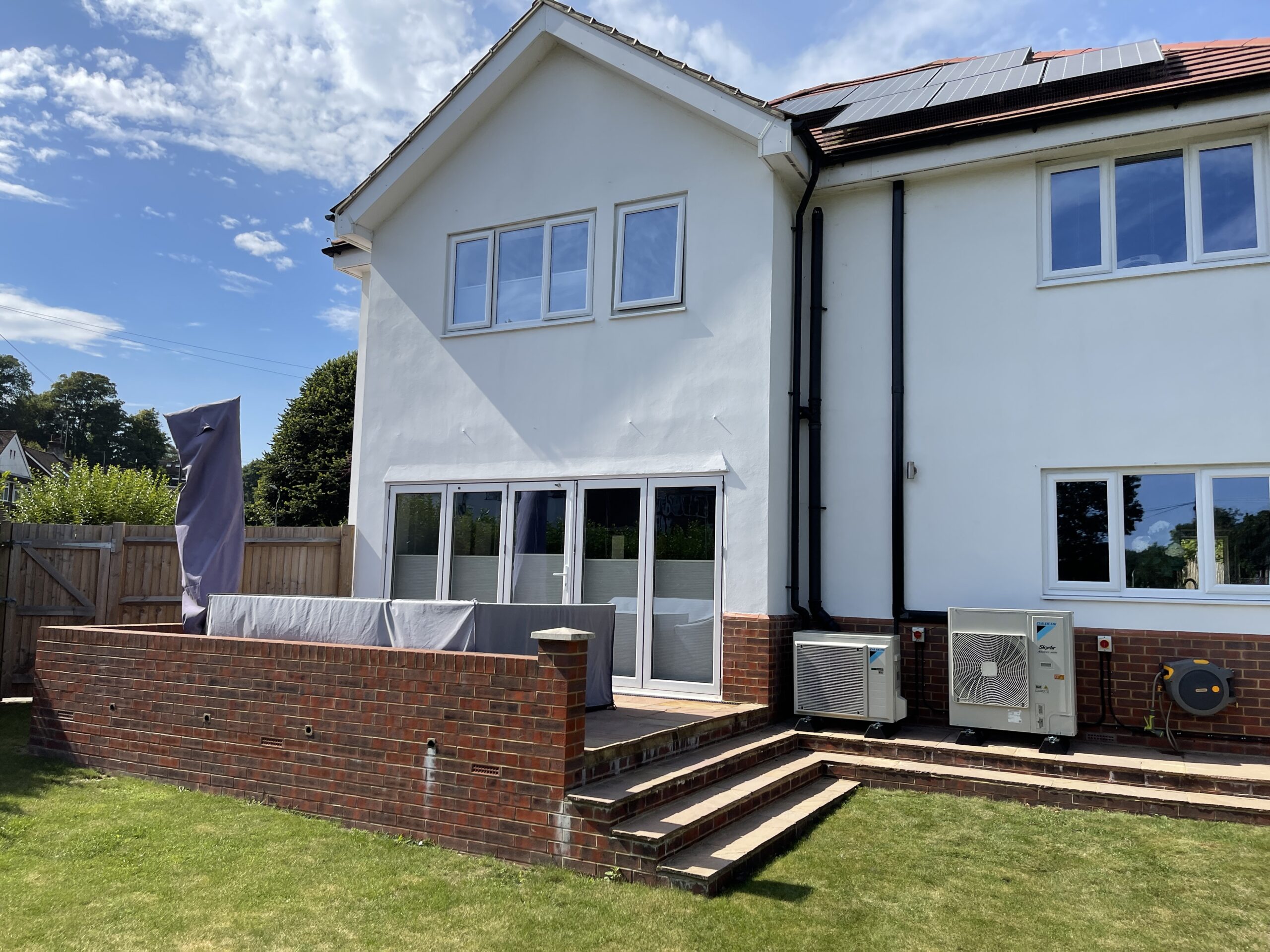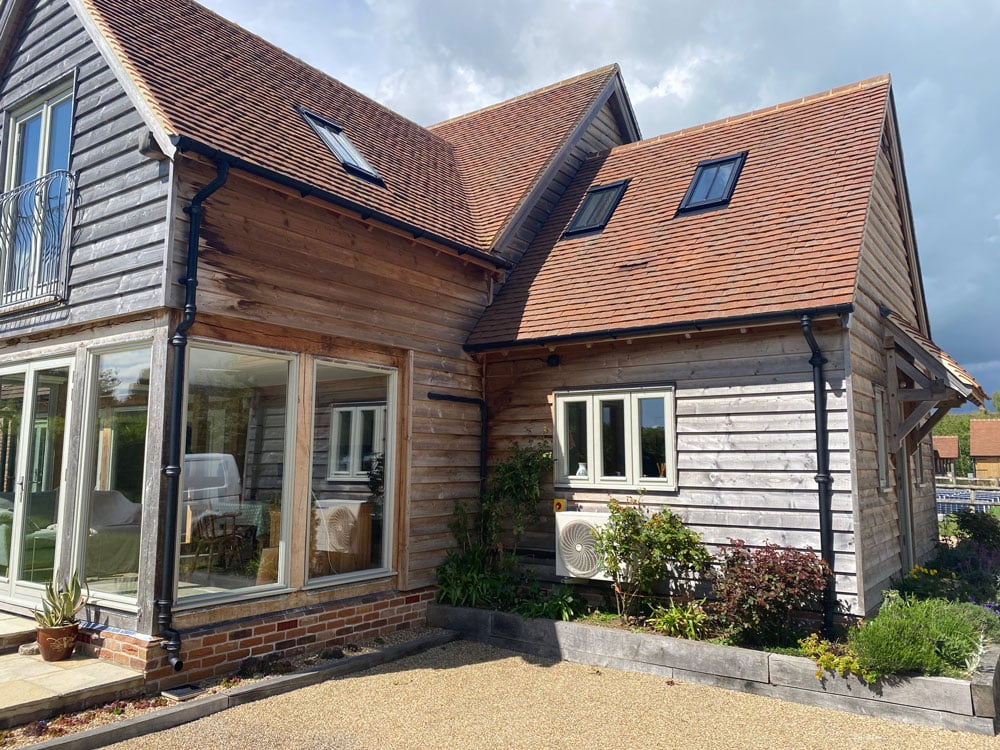Choosing the right size air conditioner is crucial for effective cooling and energy efficiency. Too small, and your unit will struggle to cool the space. Too large, and you’ll waste energy and money while creating an uncomfortable environment.
In this guide, we’ll help you determine the perfect air conditioner size for your space, explain the difference between BTU and kW, and provide guidance on selecting the right type of air conditioning system for your needs.
Why Choosing the Right Size Air Conditioner Matters
An air conditioner that’s too small won’t cool your space effectively, while one that’s too large can lead to higher energy bills and uncomfortable humidity. Getting the right size ensures optimal comfort, energy efficiency, and value.
How to Calculate What Size Air Conditioner You Need
First things first, it’s important to accurately measure the size of your room. But, there are also a few other important factors to consider when it comes to determining what size air conditioner you need for your space. Here’s how to find the perfect size:
- Measure Your Room Size: Calculate the area (in square meters) by multiplying the room’s length by its width.
- Consider Ceiling Height: Higher ceilings may require a more powerful unit.
- Account for Insulation: Poorly insulated spaces may need higher cooling capacity.
- Factor in Sunlight Exposure: Rooms with large windows or direct sunlight need more cooling.
- Consider Other Heat Sources: Appliances, lighting, and electronic devices can add heat to a room.
- Think About Occupancy: More people in a room generate more heat, increasing the cooling demand.
- Evaluate Heat-Generating Appliances: Devices like computers, TVs, and kitchen equipment add extra heat, requiring a larger unit.
- Use Our Sizing Guide: Refer to the recommended sizes below for quick selection.
Understanding BTU: What Is It and Why It Matters
When choosing an air conditioner, you’ll often come across the term BTU, which stands for British Thermal Unit. But what exactly does it mean, and why is it important? Understanding BTU is key to selecting the right air conditioner because it measures the unit’s cooling power. In simple terms, the higher the BTU rating, the more cooling power the unit provides.
What is a BTU?
- BTU (British Thermal Unit): A measure of cooling power, commonly used in the US.
- kW (Kilowatts): A metric measurement of power, more commonly used in the UK.
- Conversion: 1 kW ≈ 3,412 BTU.
- General Rule: 1 kW of cooling capacity for every 10 square meters of space.
Recommended Air Conditioner Sizes by Room Size
Selecting the right air conditioner for your space can be confusing, but using our simple sizing guide can make it much easier.
The table below provides a quick reference for choosing the correct air conditioning unit in the UK, based on the size of your room and the cooling capacity needed.
| Room Size (m²) | Cooling Capacity | Ideal Use |
| Up to 15m² | 2.5 kW (8,500 BTU) | Small bedrooms, home offices |
| 15-25m² | 3.5 kW (12,000 BTU) | Living rooms, larger bedrooms |
| 25-35m² | 5.2 kW (18,000 BTU) | Larger living spaces, open-plan areas |
| 35-50m² | 7.1 kW (24,000 BTU) | Large open spaces, small commercial areas |
| 50m² or larger | Multi-split or ducted system | Commercial spaces |
Understanding These Recommendations
The air conditioner sizing recommendations in this guide are based on typical UK conditions, including:
- Standard Ceiling Height (2.4 – 2.6 meters).
- Moderate Insulation Levels.
- Average Sunlight Exposure.
You may need a more powerful unit if your space has particularly high ceilings, poor insulation, or large glass surfaces exposed to direct sunlight.
For tailored advice, we recommend speaking to an expert such as our engineers at Eaglereach Mechanical.
Types of Air Conditioning Systems

Air conditioning systems come in various types, each designed to suit different-sized spaces and needs. Understanding the options available can help you choose the best system for your home or business. Here’s a quick overview of each one and some common use cases:
- Portable Air Conditioners: Best for small spaces, easy to move.
- Split Systems: Wall mounted, ideal for most residential spaces.
- Ducted Systems: Best for whole-house cooling or commercial spaces.
- Multi-Split Systems: Suitable for multiple rooms, offering independent control.
- Ceiling Cassette Units: Mounted in the ceiling, providing discreet and efficient cooling. Ideal for offices, retail spaces, and large open areas.
- Air Source Heat Pumps (ASHP): Versatile systems that provide both heating and cooling. Highly energy-efficient and suitable for homes looking for year-round climate control. Learn about the cost of air-to-heat pumo air conditioning installation in the UK.
- Variable Refrigerant Volume (VRV) / Variable Refrigerant Flow (VRF): Advanced systems for large buildings, offering precise control across multiple zones. Explore our guide on VRV and VRF systems.
How to Choose the Right Type for Your Space
The right air conditioning type depends on your room size, usage, and preferences.
It’s always best to set up an in-person consultation with a professional to find out exactly which type of air conditioning and what size air conditioner is right for you, but here’s some top-level guidance to give you an idea:
- Small Rooms or Rented Properties: Portable air conditioners or wall-mounted split systems for flexibility and ease of installation.
- Medium to Large Rooms: Split systems, multi-split systems, or ceiling cassette units for efficient cooling without taking up floor space.
- Large Open-Plan Spaces: Ceiling cassette units or ducted systems for even and consistent cooling.
- Entire Homes or Multi-Zone Buildings: Ducted systems, Air Source Heat Pumps (ASHP), or Variable Refrigerant Volume (VRV)/Variable Refrigerant Flow (VRF) systems for complete climate control.
- Commercial Spaces: VRV/VRF systems or ducted systems for flexible, scalable cooling and heating across multiple areas.
Real-World Example: Residential Air Conditioning Installation
Want to see how a well-planned air conditioning installation can transform a residential space? In one of our recent projects, we helped a homeowner with a beautiful but overheating property achieve perfect comfort using a professionally installed air conditioning system. See how we did it in our Residential Air Conditioning Case Study.

Common Mistakes When Choosing Air Conditioning
Even with the right information, it’s easy to make mistakes when choosing an air conditioner. Here are some common errors to avoid:
- Overestimating or underestimating room size.
- Ignoring sunlight and insulation factors.
- Choosing a unit with the wrong BTU or kW rating.
- Not considering multiple heat sources.
- Skipping professional installation advice.
Closing Thoughts
Choosing the right size air conditioner is key to maintaining comfort, energy efficiency, and avoiding unnecessary costs. By following this guide, you can confidently select the ideal unit for your space. But even with the best information, nothing beats a professional onsite assessment.
At EagleReach Mechanical, our experienced engineers can assess your needs, recommend the perfect system, and ensure a professional installation. Speak to our team today for a solution that guarantees comfort and peace of mind.
Get in touch with our experts today for a free quote!
FAQS on Air Conditioner Sizing
How do I calculate what size air conditioner I need?
Measure the room’s area (length x width), consider ceiling height, sunlight exposure, insulation, and other heat sources. Use our recommended sizes as a guide.
What size room will a 2.5 kW air conditioner cool?
A 2.5 kW unit is suitable for rooms up to 15 square meters.
What size room will a 5.2 kW air conditioner cool?
A 5.2 kW unit is suitable for rooms between 25-35 square meters.
What size room will a 7.1 kW air conditioner cool?
A 7.1 kW unit is ideal for rooms between 35-50 square meters.